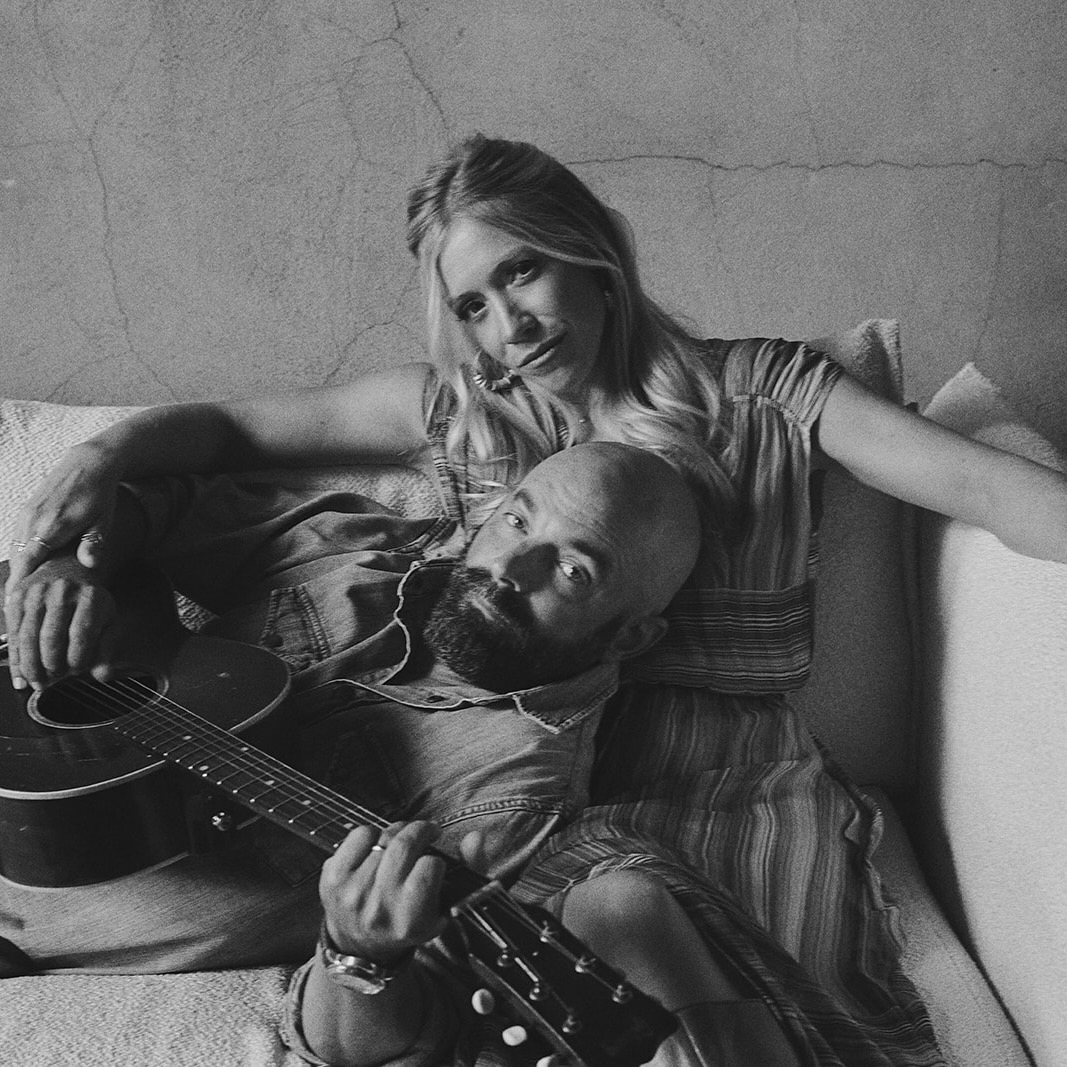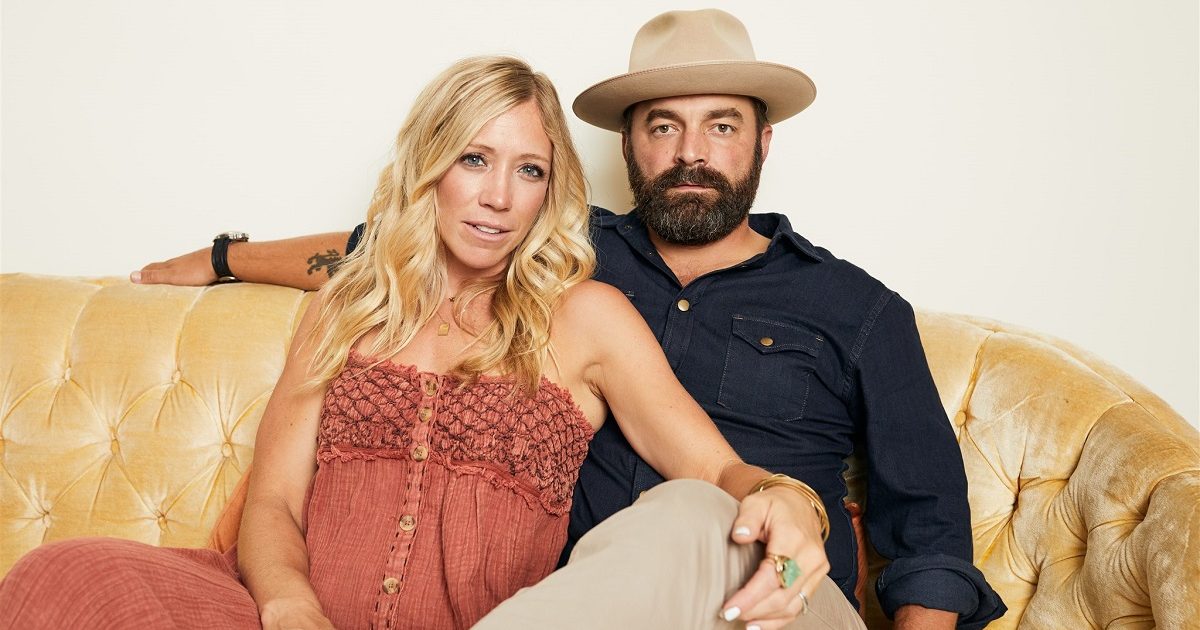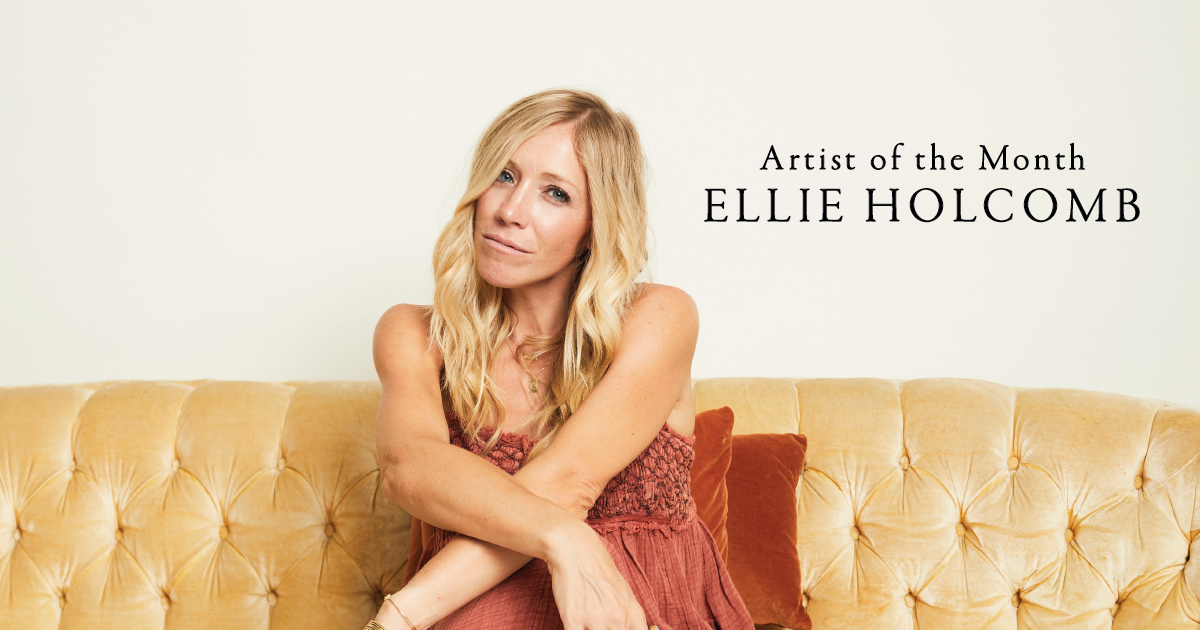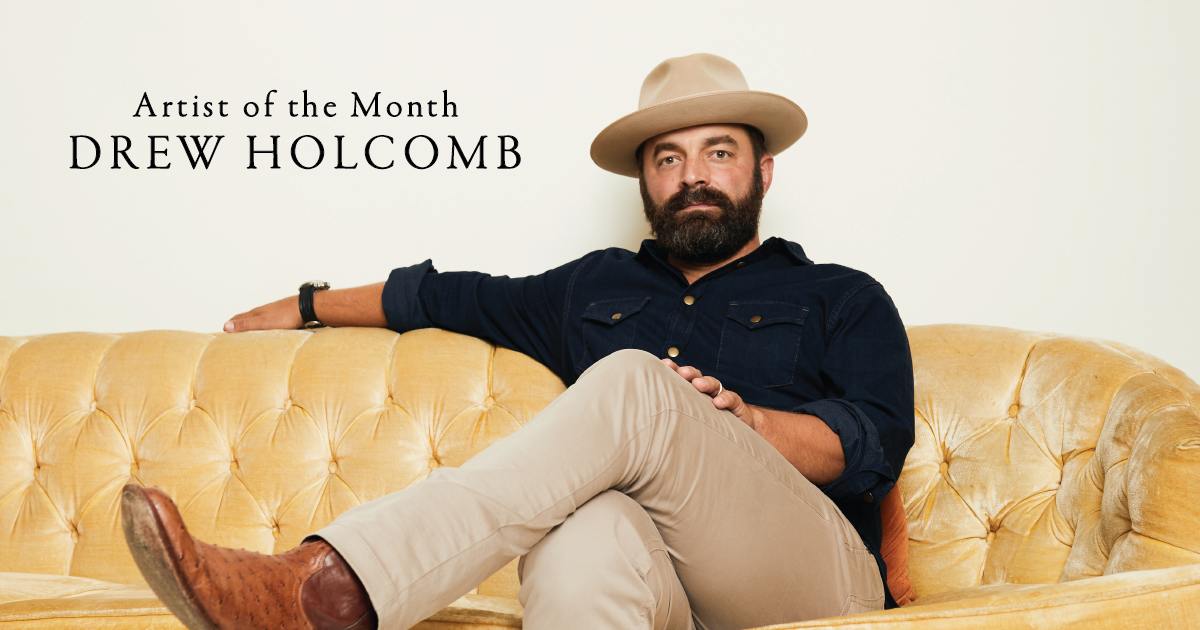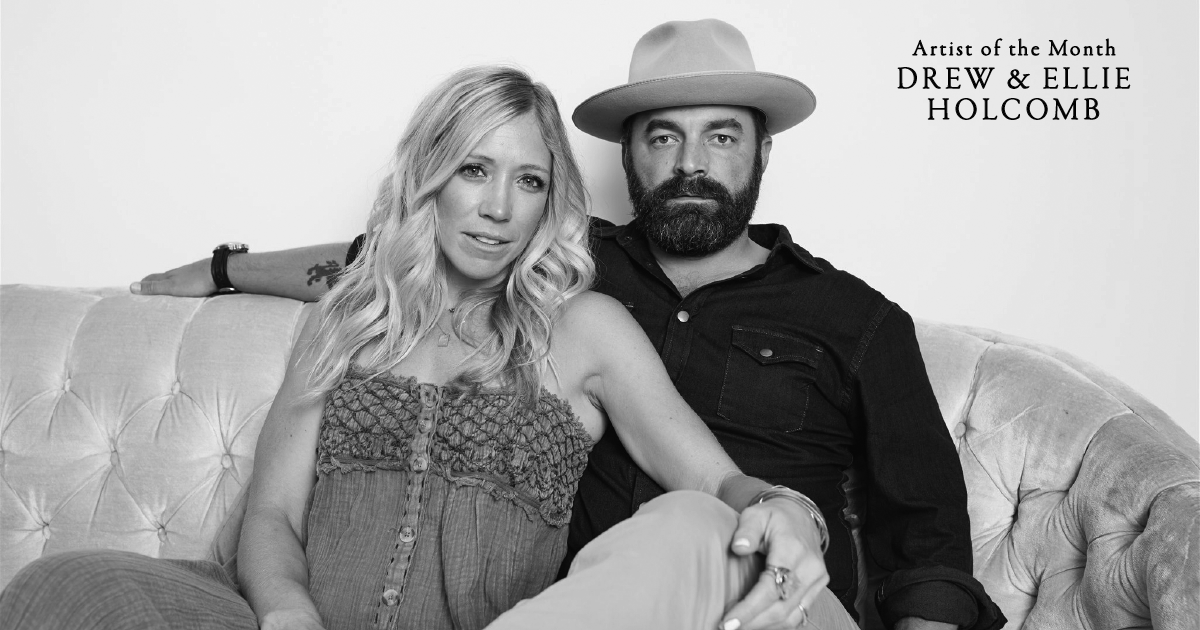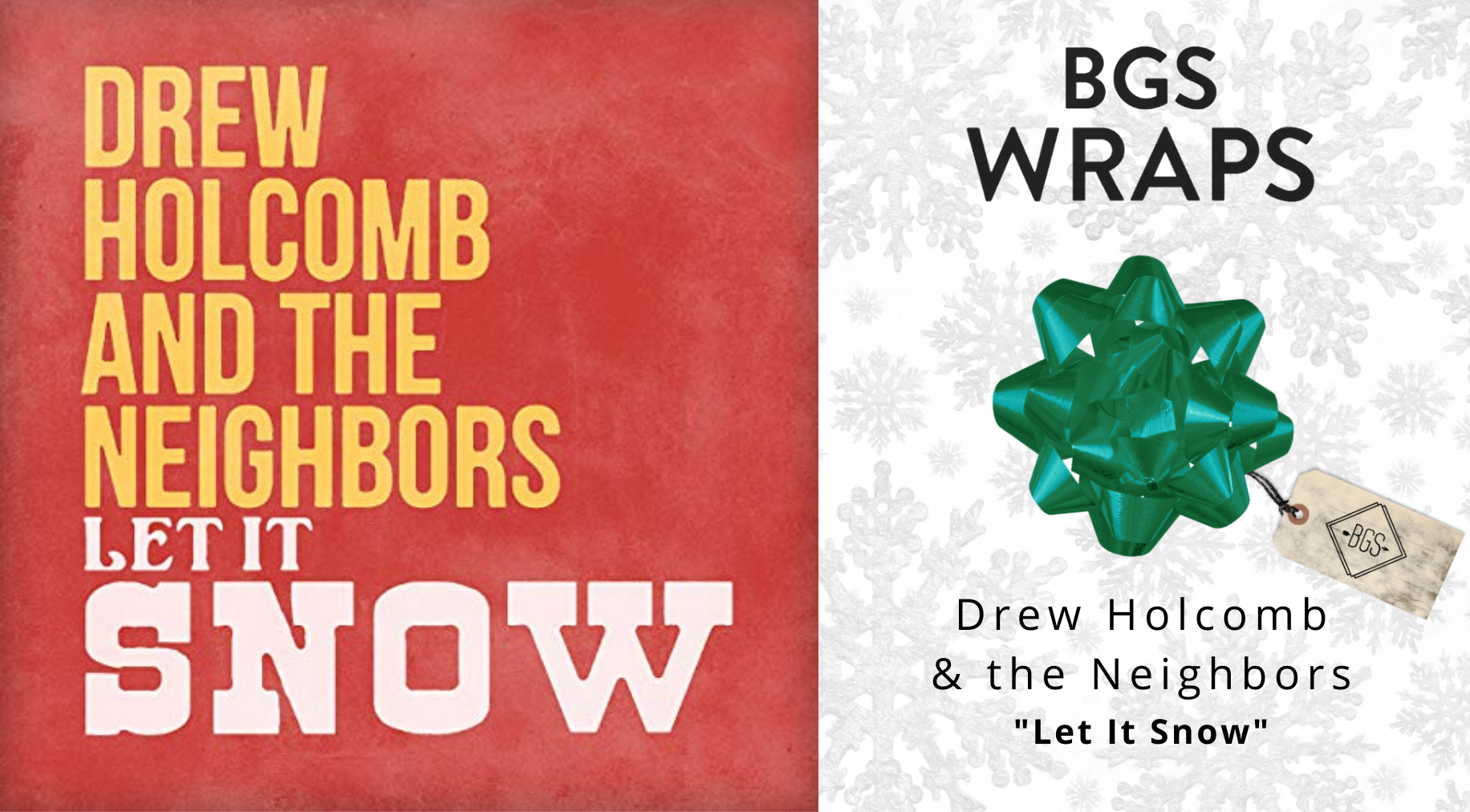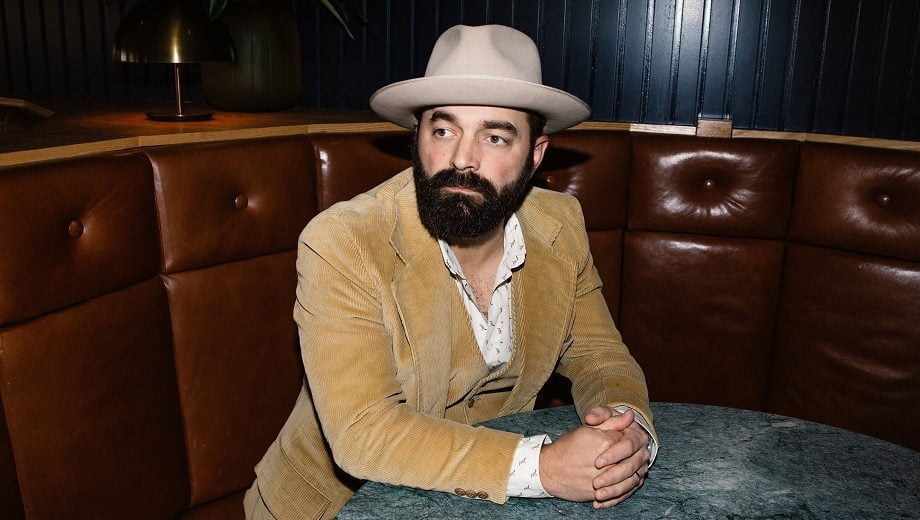Husband-and-wife indie-folk duo Drew & Ellie Holcomb have been making music together for 20 years. Ellie was a member of Drew Holcomb & the Neighbors when they first collaborated on a record in 2005 (now out of print). That was followed by 2007’s A Million Miles Away, which was then succeeded by something like their breakout, Passenger Seat, in 2008.
Over the years since, they’ve built up the Neighbors – and their cohort of friends, neighbors, fans, and listeners – into a more than tidy little paradise of a musical cul-de-sac, with more than a dozen releases (together and separately) and amassing more than a hundred million streams.
This year, the pair put out their first full-length duo album together, as equal fronting artists with the Neighbors behind them. Memory Bank, released on January 24, looks forward while looking back – a hallmark and through line of the duo, their group, and their creative output across their two-decade career. So many of the songs on Memory Bank seem to speak to the longevity they have – “Rain or Shine,” “Shut Up and Dance,” “Never Gonna Let You Go,” “Bones” – there’s a wisdom and perspective in this album that speaks to the distance they’ve traveled together. As well as denoting the upcoming miles they have yet to cover as partners, parents, and musical collaborators.
With the release of Memory Bank, we thought it was the perfect opportunity to stroll down memory lane with Drew & Ellie Holcomb, to contrast their latest project and the artists they have become now with their early projects and the artists they were then, in our most recent edition of First & Latest.
I wonder, as you put together this Memory Bank, what memories from 2008 and that first album came up for you? How did that nearly 20-year history of making music filter into this project and its songs?
Drew Holcomb: Honestly, Passenger Seat was not even the first project. There was a record in 2005 called Washed in Blue that Ellie sang on that has been scrubbed from the internet. We put on an album called A Million Miles Away in 2007, which had a bunch of songs like “I Like to Be with Me When I’m With You” and “Hung the Moon” and others. I think the younger version of us was much less confident, in a way. We were flying blind. We hadn’t made a lot of records yet and you don’t know what you’re doing in the studio. We didn’t know what we were doing as songwriters. Ellie was just a member of the band at the time.
Ellie Holcomb: I was a neighbor with benefits. The starkest difference for me between Passenger Seat in 2008 and Memory Bank in 2025 is an open-handedness and a freedom that comes with the death of ego and also with a general posture of curiosity and gratitude.
You are both prolific creators – together and separately – how have you balanced your individual musical identities with your collective work over that time period? Do you find it to be an easy balance or a tricky one?
EH: One of my favorite things about us doing music both together and separately is that there’s a massive amount of respect for each other. The reason it took us 20 years to write and record an album together is because we’ve always honored that artistic and creative space with each other. We write really differently, we create really differently. I think that mutual respect and space that we’ve given each other made space for us to make what we we’ve released into the world now – and I love it.
DH: My only addition is a short answer: No, it’s not an easy balance. It’s very tricky, but it’s worth it.
I think our relationship definitely manifests itself through the music. I think on the one hand, there’s like the aspiration – love songs are often about the love that you hope that you have. So, when you’re young and you’re speaking about when you get older, you’re making a promise to yourself and to each other about the kind of love you hope for. There’s also a bit of the truths of your own personalities make it into songs.
There’s clearly a mission and a message in your music, and I think that’s part of your staying power as artists and part of why over so many releases in so many iterations – as a couple, with the Neighbors, as solo artists, as collaborators on outside projects – your songs continue to resonate with audiences in such an authentic and down to earth way. I wonder how much of that encouragement folks get from your music that you get, yourselves? I can see that being a big part of how you’ve gotten this far and are still moving forward.
EH: I’d say we talk to our kids a lot about what a stage is for and we always tell them that a stage is to bring joy. It’s a shared space where our stories mingle together. Music is a bridge builder. Our mission, if you will, with music is that it would help people connect to their own story and that it would help people connect to everybody else and feel a little less alone. There’s this beautiful quote that says we decorate space with art and we use music to decorate time. We feel so deeply grateful that people have used our songs to decorate like the time and the seasons of their lives, sorrow, joy, road trips, family gatherings, etc.
What will you take with you in your “memory bank” as you move forward, as you stare down the next 17 years of making music together? What do you see as your touchstones – or, alternatively, what do you hope you’ll look back and recall if we were to have this conversation again in 20 more years?
DH: Our memory bank as we move forward in the next 17 years of making music together, we are always trying to keep growing. I didn’t know how to sing harmony until this record. I learned how to sing harmony, not with the intention of making a record, but because I wanted to learn. Ellie’s learning piano with similar intentions. There are always new songs to find.
When you were making and releasing Passenger Seat, where did you see yourself now, all these years later? Was this always the goal? Did it seem like a pipe dream that you’d still be doing this together? Or was it inevitable?
DH: Music was definitely not inevitable. When I started making music, Ellie was a school teacher with no intention of being a professional musician. So we have just taken it a year at a time.
Photo Credit: Courtesy of the artists.
